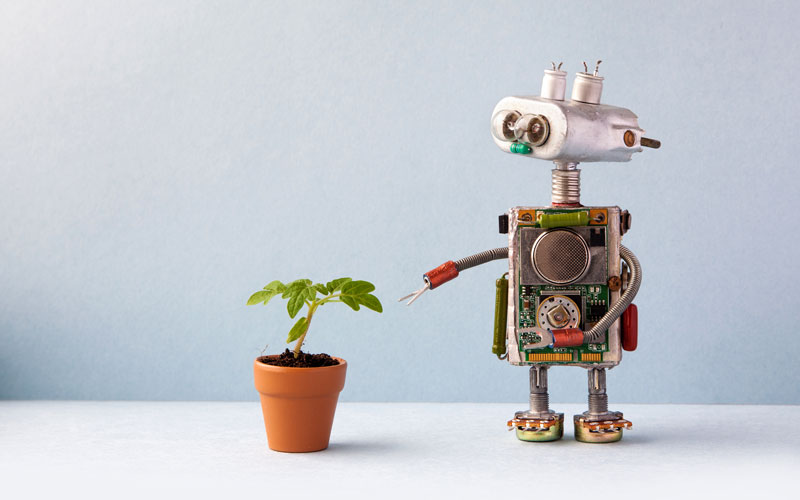Hello Gerhard, would you like to tell us about your projects?
Of course, with pleasure! My team and I do a lot of work with the public sector in the area of artificial intelligence. We are developing smart algorithms to more easily solve problems that currently require a lot of effort. I’ll give you a specific example: if there was a storm, the forestry office has to get an idea of the damage and comb through large areas of forest. Our algorithm creates a map based on satellite imagery before and after the storm, which forestry offices can use to quickly assess the need for action and better plan operations. This saves time and energy, as they no longer have to drive through the woods.
Another project is about bark beetles. This pest is wreaking havoc on local forests – and we all know how important forests are to global equilibrium. We can use satellite images to map the forest ecosystem and analyze how the bark beetle spreads. From this, our solution makes predictions about the areas at risk. These help foresters take appropriate measures to protect trees. As soon as these solutions are ready for the market, they will be deployed throughout Germany. Various municipalities, including the city of Göttingen, have already expressed their interest.
Exciting! However, the public sector is not necessarily the biggest polluter. Do you also develop solutions for industry?
Yes, we do that too. Some of our algorithms aim to reduce the use of pesticides. One project is about a fungus called Cercospora that affects sugar beets. A Europe-wide problem that is combated with the use of pesticides. However, even for experts, a fungal attack by Cercospora is not easy to distinguish from other diseases that require different treatment. Our app analyzes images of the infestation and automatically creates a treatment plan. Thus, only those plants that are actually affected by the fungus and can still be saved are treated. Sometimes the disease is so advanced that treatment is no longer effective. Using fewer pesticides definitely contributes to more sustainable agriculture.
Are there any other projects you’d like to tell us about?
Yes, one is particularly close to my heart. My colleague Dimas Wiese has developed an algorithm for recognizing cherry varieties. Many old varieties are no longer well-known and can be distinguished only by the stone. If you show the program a clean cherry stone, it can identify the cherry variety in seconds. This contributes to the awareness of old fruit varieties and makes it easier to ensure their continued existence. This work is well received: there have already been requests for us to expand the solution to include apples and strawberries.
What is your personal opinion on the subject of digitalization and sustainability?
Well, there are two sides to everything, including digitalization. My team and I like to participate in tenders on Kaggle in our spare time. This is a platform where companies post their problems, which can then be worked on by programmers around the world. Here, you can follow live how clever minds develop smart programs for very specific problems, which often also have to do with environmental pollution. This gives us hope! I think a lot of it is also about people’s awareness of how their digital activities have a concrete impact on the planet. As I see it, this awareness has increased rapidly in recent years – a good first step, I would say as an unstoppable optimist!
Thank you for the interview, Gerhard!

Dr. Gerhard Heinzerling
Senior Data Scientist and Member of the Supervisory Board
Arineo Germany
